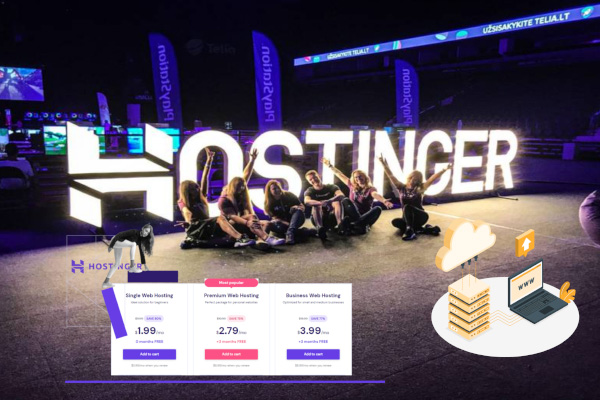Table of Contents
1. Introduction
Consider you are participating in a marathon. You have dedicated months to training, and you kick off the race with enthusiasm. However, as the miles accumulate, exhaustion sets in. Your legs grow heavy, breathing becomes labored, and your thoughts start to wander. This mirrors the experience of mental exhaustion. It’s like running a mental marathon where you continually face the pressure of meeting deadlines, achieving objectives, and keeping up with work demands. Over time, your mental resources deplete, leading to feelings of overwhelm and fatigue.
Mental exhaustion is a one of the prominent issues in the workplace. However, it is important to accept that it is not a condition you must afford. There are various estimates you can take to overcome mental exhaustion and recapture command over your life.
2. What is Mental Exhaustion?
Mental exhaustion is a state of extreme fatigue and depletion of cognitive resources. It is often caused by prolonged exposure to stress and can be accompanied by a range of other symptoms, such as difficulty concentrating, irritability, and a lack of motivation.
3. Why is Mental Exhaustion So Common in the Workplace?
There exist several contributing factors to mental exhaustion at work, which include!
1. Unrealistic Expectations: When employees are consistently pressured to meet unattainable deadlines or unrealistic objectives, it often results in feelings of overwhelm and frustration.
2. Excessive Workload: When employees are regularly loaded with excessive tasks, they are more inclined to encounter mental exhaustion.
3. Lack of Control Over One’s Work: Employees who see an absence of command over their tasks and responsibility are at a higher gamble of experiencing mental exhaustion.
4. Poor Work-Life Balance: Employees who battle to find some kind of harmony among work and individual life are more powerless to mental exhaustion.
5. Toxic Work Environment: A work setting marked by bullying, harassment, or other forms of mistreatment can be a significant cause of mental exhaustion.
4. Negative Consequences of Mental Exhaustion
Mental exhaustion often results in multiple negative impacts for both individuals and organizations.
Let’s discuss them one by one!
For individuals, mental exhaustion can prompt a large number of issues which include!
1. Decreased Productivity: Individuals often find it challenging to maintain their usual level of productivity when mentally exhausted.
2. Impaired Decision-Making: Cognitive fatigue can lead to poor decision-making and increased errors.
3. Physical Health Concerns: Mental exhaustion can contribute to physical health problems, such as disrupted sleep patterns and increased stress.
4. Strained Relationships: It can cause strain in personal relationships due to irritability and a lack of emotional energy.
For organizations, mental exhaustion can lead to various challenges, including!
1. Reduced Efficiency: Employees’ mental fatigue can lead to reduced efficiency and output in the workplace.
2. Higher Turnover: An exhausted workforce may lead to increased turnover rates and difficulty retaining skilled employees.
3. Increased Absenteeism: Employees may take more sick days due to stress-related health issues.
4. Decreased Innovation: A mentally fatigued workforce is less likely to contribute fresh ideas or innovations.
5. Negative Workplace Culture: A workplace plagued by mental exhaustion can result in a negative and toxic culture.
Mental exhaustion is indeed a significant concern, but it can be effectively addressed with the right strategies. This typically involves self-care and implementing changes in your work routine.
Want to achieve your personalized fitness goals?
5. Identify the Signs and Symptoms of Mental Exhaustion
Cognitive Symptoms
1. Difficulty concentrating
2. Forgetfulness
3. Difficulty making decisions
4. Lack of creativity
5. Mental fog
Emotional Symptoms
1. Irritability
2. Cynicism
3. Hopelessness
4. Apathy
5. Withdrawal from social activities
Physical Symptoms
1. Fatigue
2. Headaches
3. Muscle aches
4. Stomachaches
5. Sleep problems
6. Impact Mental Exhaustion on Work Performance, Relationships and Overall Well-being
Mental exhaustion can wield a substantial influence on an individual’s work output, relationships, and general state of being. It can bring about diminished efficiency, expanded absenteeism and an increased risk of accidents and errors at working environment. In interpersonal connections, it can bring about irritability, withdrawal and relational contentions.
Overall, it can result in a decreased feeling of prosperity, increased feelings of anxiety, and a raised gamble of emotional well-being difficulties, like discouragement and nervousness.

Here are some specific instances illustrating how mental exhaustion can affect different facets of an individual’s life.
1. At Work: A mentally exhausted person may struggle with tasks, decision-making, and meeting deadlines. They might also be more prone to errors and exhibit irritability towards colleagues.
2. In Relationships: A mentally exhausted individual may withdraw from social engagements, display reduced interest in spending time with loved ones, and become more inclined to react impulsively or engage in arguments.
3. Regarding Overall Well-being: A mentally exhausted person might persistently feel fatigued, even after adequate sleep. They could encounter sleeping difficulties, contend with headaches and muscle discomfort, and undergo changes in their eating habits.
If you are having any of the signs and symptoms related with mental exhaustion, it is important to request help from a clinical expert or a psychological well-being trained professional. They can assist in identifying the underlying causes of your fatigue and collaboratively devise a plan to address it.
7. Understanding the Causes of Mental Exhaustion at Work
1. Unrealistic Expectations: Unrealistic expectations from employers or colleagues can significantly contribute to workplace mental exhaustion. This becomes particularly evident when employees find themselves perpetually pressured to meet unattainable deadlines or attain unfeasible goals. Such unrealistic expectations can trigger overwhelming feelings, frustration, and self-doubt.
2. Excessive Workload: An excessive workload is another prevalent factor leading to mental exhaustion at work. Employees consistently overburdened are more susceptible to stress, anxiety, and fatigue. This is due to their difficulty in managing the relentless demands of their job, often feeling on the brink of burnout.
3. Lack of Control Over One’s Work: When employees perceive a lack of control over their work or workload, they are at a higher risk of experiencing mental exhaustion. Feelings of helplessness and powerlessness in improving their circumstances can result in frustration, anger, and resentment.
4. Poor Work-life Balance: A poor work-life balance can also trigger mental exhaustion at work. When employees struggle for a healthy equilibrium between their professional and personal lives, it can lead to stress and burnout. This is commonly observed in those working consistently long hours or those don’t have enough time for their personal well-being.
5. Toxic Work Environment: A toxic workplace, described by tormenting, provocation, or different types of abuse, can be one more huge supporter of mental exhaustion. Consistent openness to such an environment improves the probability of encountering stress, uneasiness, and depression. This, thusly, resists viable work execution and produces sensations of sadness and gloom.
6. Lack of Social Support: Absence of social support within the workplace can also intensify mental exhaustion. Employees who feel they have no one to confide in or seek support from are more likely to endure stress and burnout. Establishing supportive relationships with colleagues and supervisors can aid employees in managing stress and workload effectively.
8. How to Address the Causes of Mental Exhaustion at Work
If you find yourself grappling with mental exhaustion in your workplace, there are several steps you can take to address these root causes.
1. Set realistic Expectations: Establish attainable expectations for both yourself and others. Don’t hesitate to decline extra work or seek assistance when needed.
2. Prioritize and Delegate: Concentrate on the most crucial tasks and be open to asking for help with the rest.
3. Take Breaks: Incorporate breaks into your workday. Step away, stretch, or take a few moments to unwind and clear your mind.
4. Foster Work-life Balance: Dedicate time to activities and interests outside of work to maintain a healthy balance.
5. Cultivate Relationships: Build supportive connections with your colleagues and supervisors. A network of supportive individuals at work can assist you in managing stress and workload effectively.
If you are trapped in a toxic work environment, it is crucial to safeguard your mental health. This might entail discussing the situation with your supervisor or HR department, or exploring new job opportunities.
Remember, you are not alone in this struggle. Mental exhaustion is a widespread issue that can be surmounted. By focusing on self-care and implementing changes in your work routine, you can regain control over your life and flourish.
9. Strategies for Overcoming Mental Exhaustion at Work
There are a wide range of strategies that you can adapt to overcome mental exhaustion at work. Let’s discuss them in detail.
Individual-Level Strategies
The following are a few proof-based strategies that people can utilize to really manage stress, upgrade work-life balance, and advance mental prosperity in the working environment.
1. Set Realistic Expectations
It is crucial to establish realistic expectations for both yourself and others. Don’t hesitate to decline extra work or request assistance when necessary. Prolonged exposure to unrealistic deadlines or unattainable goals can lead to feelings of overwhelm, frustration, and self-doubt.

2. Prioritize Tasks
Create a comprehensive task list and prioritize items based on their importance and urgency. Focus on the most critical tasks first, and consider delegating or postponing less vital assignments. This approach will provide a sense of control over your workload and reduce stress.

3. Take Breaks
Avoid fatigue and improve focus by taking short breaks every 20-30 minutes. Engage in activities like a brief walk, stretching, or deep breathing exercises. Allocate time for a more substantial lunch break and a break at the end of your workday.

4. Establish a Healthy Work-Life Balance
Dedicate time to activities and interests outside of work that you find enjoyable. This may include spending quality time with loved ones, engaging in physical exercise, pursuing hobbies, or simply unwinding. A healthy work-life balance diminishes the likelihood of burnout and mental exhaustion.

5. Build Relationships
Cultivate supportive relationships with your colleagues and supervisors. This network of individuals at work can aid you in coping with stress and managing your workload. Take the initiative to get to know your coworkers and don’t hesitate to seek assistance when needed.

6. Seek Professional Help
If you find it challenging to manage mental exhaustion independently, consider consulting a therapist or counselor. They can help you pinpoint the underlying causes of your exhaustion and devise a comprehensive plan to address it.

Organizational-Level Strategies
Organizations can also take measures to mitigate mental exhaustion among their workforce. Here are some noteworthy examples.
1. Promote Work-Life Balance: Organizations can introduce flexible work arrangements like telecommuting or compressed workweeks to facilitate a better work-life balance for employees. Additionally, offering employee assistance programs and resources can aid employees in managing stress and personal challenges.
2. Foster a Positive Work Environment: By fostering a culture of respect, support, and collaboration, organizations can create a positive work environment. Providing opportunities for professional growth and a meaningful impact on their work can further contribute to a conducive workplace.
3. Invest in Employee Well-Being: Organizations can prioritize employee well-being by offering programs and resources that promote physical and mental health. These may include on-site fitness centers, mental health benefits, or health and wellness workshops.
10. Actionable Tips for Readers
These are a few noteworthy evidence-based tips for the readers who are struggling with mental exhaustion at work.
1. Identify the Root Cause: Find out the source of your mental fatigue. Whether it’s unreasonable assumptions, unnecessary workload, absence of work control, an unevenness between work and personal life, a harmful workplace, or another component. Once you pinpoint the root cause, you can initiate a plan to address it.
2. Set Boundaries: Establish boundaries between your work and personal life. Avoid checking work emails or messages outside of work hours, and allocate time for yourself and your loved ones.
3. Self-Care: Ensure you are getting adequate sleep, maintaining a healthy diet, and engaging in regular exercise. These elements are fundamental for sustaining good mental health.
4. Seek Support: Don’t hesitate to confide in a trusted friend, family member, therapist, or counselor regarding your struggles. Having someone to talk to can reduce feelings of isolation and enhance your sense of support.
Mental Exhaustion is one of the most important well-being challenges. However, you can reclaim the control over your life and flourish by adapting self-care and incorporating necessary changes in your work routine.
11. Reclaiming Your Life from Mental Exhaustion
Setting boundaries between work and personal life
One of the pivotal steps to reclaim your life from mental exhaustion is the establishment of clear boundaries between your professional and personal life. This involves refraining from checking work-related emails or messages outside of your designated work hours and allocating time for both personal rejuvenation and spending moments with your loved ones.
Persistently engaging in work makes it challenging to unwind and alleviate stress, potentially leading to burnout and mental fatigue. Boundary setting empowers you to strike a more harmonious work-life balance and lessens the risk of mental exhaustion.
Here are some practical tips for creating boundaries between work and personal life.
1. Set Defined Work Hours: Determine the number of hours per day and week that you are willing to devote to work, and make a committed effort to adhere to these hours.
2. Limit After-Hours Work Communication: Steer clear of checking work-related emails and messages beyond your designated work hours. While it can be challenging, this practice is pivotal in affording yourself a break from work. In cases where after-hours checks are unavoidable, establish a specific time for this task and adhere to it.
3. Take Regular Breaks: During the workday, allocate time to take short breaks that involve physical activity, stretching, relaxation, or simply clearing your mind. It is equally crucial to ensure longer breaks for lunch and at the conclusion of the workday.
4. Prioritize Personal Time: Schedule personal time for yourself and your loved ones outside of your work commitments. Allocate time for activities that bring you joy, such as quality moments with family and friends, pursuit of hobbies, or simply unwinding.
Pursuing Activities and Interests that Bring you Joy and Fulfillment
Another significant stride toward reclaiming your life from mental exhaustion is the active pursuit of activities and interests that bring joy and fulfillment. Engaging in activities you genuinely relish can reduce stress and enhance your overall mood.
Here are some suggestions for activities and interests that can assist in alleviating mental exhaustion and enhancing well-being.
1. Quality Time with Loved Ones: Social support plays a crucial role in mental well-being. Dedicate time to cherished individuals in your life, and express the significance of their presence.
2. Pursuit of Hobbies and Interests: Engaging in activities you find pleasurable can substantially reduce stress and elevate your mood. Whether it involves reading, writing, playing music, or embracing the outdoors, allocate time for activities that resonate with you.
3. Volunteer Your Time: Offering your help to others is a remunerating method for contributing to your community and develop a feeling of personal satisfaction. It can also alleviate stress and boost your mood.
4. Prioritize Physical Health: Keeping an even eating regimen, regular exercise, and sufficient sleep are primary components for mental prosperity. Pay attention to your physical health to ensure you have the vitality needed to enjoy the activities you love.
12. Resources for Additional Support
If the task of recovering your life from mental exhaustion ends up being an overwhelming one, there are resources accessible to give you direction and help. Some of practical examples are listed below.
1. Mental Health Professionals: Specialists and counselors can work with the identification of the underlying drivers of your mental exhaustion and help in contriving an extensive arrangement for tending to it.
2. Employee Assistance Programs (EAPs): Numerous businesses stretch out EAPs to their employers which provide confidential counselling and support services to their employees and their families as well.
3. Online Resources: A wealth of online resources is accessible to help you gain a better understanding of mental exhaustion and how to effectively manage it. Some useful websites include:
13. Conclusion
In summary, mental exhaustion stands as a significant challenge, yet it is a challenge that can be surmounted through a strategic approach. However, it necessitates self-care and workplace adjustments.
Key Points of the Article
1. Nature of Mental Exhaustion: Mental exhaustion entails extreme fatigue and the depletion of cognitive resources.
2. Root Causes: It results from prolonged exposure to stress and has far-reaching implications, including reduced productivity, increased absenteeism, a higher risk of accidents and errors, and an elevated susceptibility to mental health issues like depression and anxiety.
3. Mitigating Strategies: To counter mental exhaustion at work, consider actions such as setting realistic expectations, task prioritization, regular breaks, the cultivation of a balanced work-life dynamic, and fostering relationships with colleagues and supervisors.
4. Organizational Involvement: Organizations too can contribute to alleviating mental exhaustion by endorsing a balanced work-life paradigm, cultivating a positive workplace environment, and investing in employee well-being.
5. Reclaiming Your Life: It is vital to regain control over your life from mental exhaustion. This can be achieved by demarcating clear boundaries between your professional and personal life, actively engaging in fulfilling activities and interests, and seeking professional guidance when required.
For those grappling with mental exhaustion, it is imperative to initiate steps to overcome it and reclaim your life. Support is promptly accessible; kindly feel free to seek help from experts when required.
Remember, you are not alone.









1 thought on “How to Overcome Mental Exhaustion at Work and Reclaim Your Life”
Hi! Do you know if they make any plugins to help with Search Engine Optimization? I'm trying
to get my website to rank for some targeted keywords
but I'm not seeing very good success. If you know of any
please share. Appreciate it! You can read similar blog here:
Eco blankets